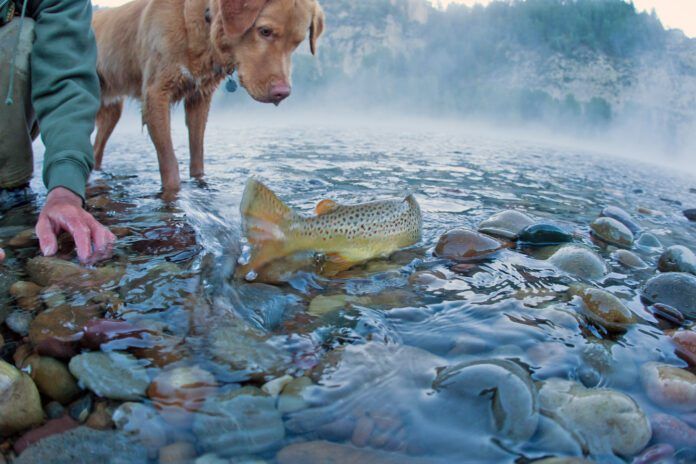Unless your dog has been rolling in dead fish, a fishy odor is not something to expect. Three common causes of a fishy odor are anal gland expression or abnormalities, urinary tract infections, and dental disease.
Why Does My Dog Smell Like Fish When Scared?
Your dog has two glands called anal sacs located just inside her anus. These glands contain a stinky fluid and are naturally expressed when your dog poops (this is what gives dog feces their distinctive aroma).
Your dog can also reflexively express his or her anal sacs when afraid, squirting out all the stinky, oily contents. This is a useful strategy when trying to get away from a predator or other threat because the fishy stink distracts the attacker, giving your dog a chance to escape. Our pet dogs may not need to escape from bears or lions, but they still may express their anal glands during stressful events, resulting in that stinky fishy smell.
Anal glands can also become impacted or infected. The buildup of excess contents or the buildup of infection will increase the odor, and may cause your dog to smell fishy even when she is calm and resting. If you notice your dog scooting or that her hind end has an unusual odor, schedule an appointment with her veterinarian.
Why Does My Dog’s Breath Smell Like Fish?
Dental disease is a common problem in adult dogs and with it comes bad breath. Depending on the type of bacteria wreaking havoc in your dog’s mouth, your pup’s breath could smell like rotten fish.
A dental cleaning under anesthesia will remove the bacteria, plaque, and calculus from your dog’s mouth and resolve the odor.
Why Does My Dog Pee Smell Like Fish?
If your dog’s urine smells like fish, she may have a urinary tract infection. As long as your dog has had a wellness exam within the past year, your veterinarian may let you drop off a urine sample to be evaluated without bringing your dog in for an appointment. Once the urine has been examined, your veterinarian will dispense the appropriate medications to resolve the infection.






